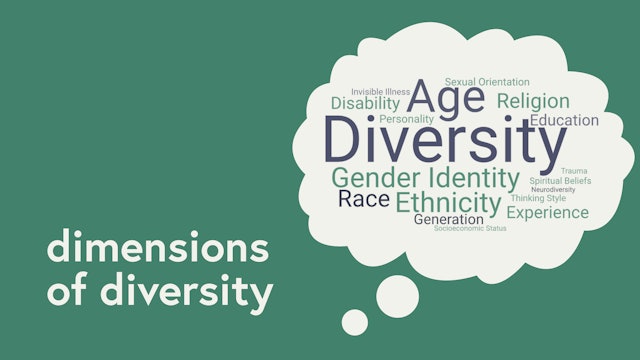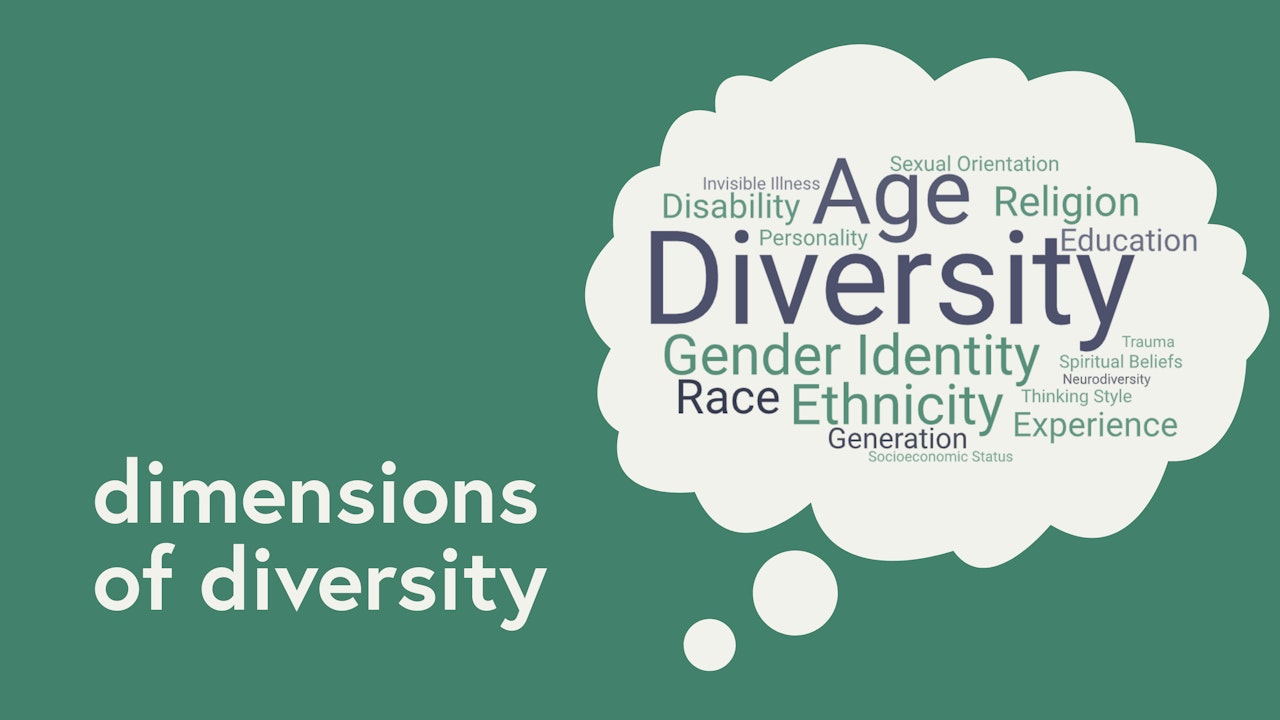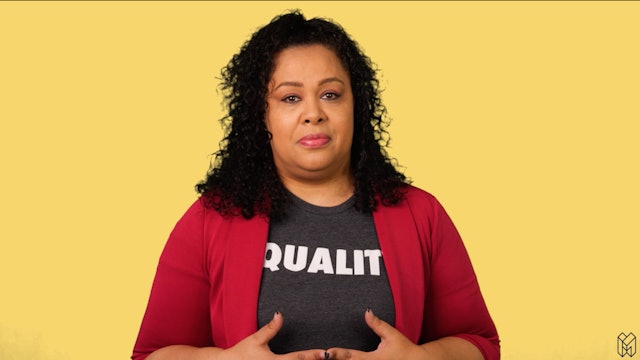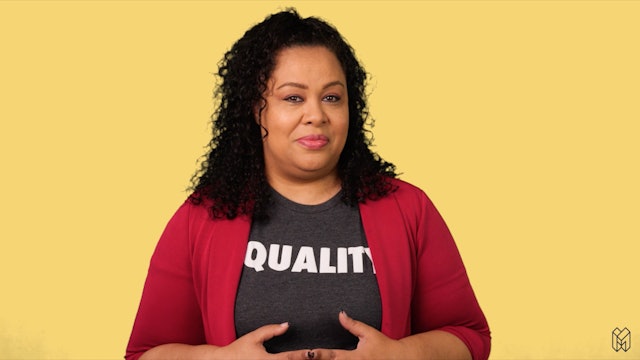-
What Is Sikhism?
Get a basic understanding of Sikhism, the world’s fifth-largest religion. Learn where and when Sikhism originated. Explore the central elements of Sikh philosophy. Consider why learning about the world’s religions helps build cultural competency and stronger organizations.
-
Best Practices for Inclusion of People with Invisible Illnesses
Since invisible illnesses can’t be seen by others, they’re often trivialized and ignored. Follow these best practices to provide a safe and respectful work environment for employees with invisible illnesses and conditions.
-
What is the Seventh-Day Adventist Church?
Get a helpful overview of the Seventh-day Adventist Church, its key values, and what differentiates it from other Christian denominations. Learn why scheduling flexibility and vegetarian menu options are helpful to Seventh-day Adventist employees.
-
What is Social Class Diversity?
Explore what’s meant by the related terms “social class diversity,” “socioeconomic status,” and “experiential diversity.” Learn how people from different family backgrounds (based on terms of education, employment, and income) benefit organizations by holding varied and valuable perspectives.
-
Religious Demographics of the United States
The United States is a country of many different religious traditions. 65 percent of the population identifies as Christian, 29 percent identify as nonreligious, and the rest belong to religions such as Judaism and Islam. Here’s a deeper look at America’s religious demographics today.
-
How Should We Celebrate Hispanic and Latine Heritage Month?
Get helpful tips for how to honor and celebrate Hispanic and Latine Heritage Month (September 15-October 15) at home and at work. If you’re not a member of the Latine community, this month is a great opportunity to learn, experience, and show your support.
-
Is Diversity More Than Just a Discussion About Race and Gender?
Other than race and gender, there are many aspects that create an individual's unique identity. Learn what other characteristics are relevant to the DEI conversation.
-
What is a Protective Hairstyle?
Protective hairstyles were created to protect natural Black hair from the harsh styling sometimes required to conform to social norms of professionalism. Learn how your questions might be offending your coworkers.
-
What Does Gen Z Expect from Corporations and Leaders
Learn the top 3 things that Gen Z expects in the workplace so that you can effectively recruit and retain this next generation of young professionals.
-
What Is Ramadan?
Ramadan is the ninth and holiest month of the Islamic calendar, featuring prayer, fasting, and community gatherings. It’s important to be mindful of Muslim employees’ changing needs during this time.
-
Best Practices for Inclusion of Muslim Employees
Islamophobia is all too common in Western society. Here’s how to prevent it in your workplace and ensure Muslim employees have everything they need to feel safe, included, and accepted at work.
-
What Does It Mean To Keep Kosher?
Get a quick overview of the Jewish practice of “keeping kosher.” Learn the basic dietary guidelines dating back thousands of years that some Jewish people follow today. Confirm the importance of making kosher food options available in your company cafeteria and at corporate events.
-
Why Do Some People Wear Headscarves As Part of Their Religion?
Confirm the importance of respecting the head coverings worn by many people of different religions to convey humility, modesty, spirituality, and respect. Get a more detailed understanding of head coverings in Islam, Judaism, and Sikhism and the values they represent.
-
What Is Islamophobia?
Gain a deeper understanding of Islamophobia, fear and hatred expressed toward Muslims. Examine the root causes of Islamophobia and its negative impacts on society. Learn to recognize Islamophobia in the workplace and what actions to take to address it.
-
What Are The Consequences of Fatphobia?
Increase your understanding of the form of bias known as fatphobia. Examine the many negative effects of judging, shaming, or discriminating against others because of weight. Consider the importance of building a culture that’s inclusive and accepting of everyone, regardless of body type.
-
Why Is It Important to Understand Other Religions?
In today's multicultural workforce, an understanding of the different religions that people practice isn’t just a sign of respect—it’s a competitive business advantage. Discover the importance of learning about different religions and spiritualities.
-
What is Mormonism/The LDS Church?
The Church of Jesus Christ of Latter-day Saints is often known informally as the LDS Church or Mormon Church. The first major religious group born in America and not derived from a colonial population, the LDS Church spread quickly with the migration of church members to Utah and surrounding states.
-
What Is Fatphobia?
Gain a better understanding of fatphobia, discrimination and stigma aimed at people who are overweight or obese. Learn why it’s important to recognize the existence of fatphobia and take it just as seriously as any other form of workplace discrimination.
-
What Is Eid al-Fitr?
Eid al-Fitr is a Muslim holiday marking the end of Ramadan. It translates directly to “Feast of Breaking the Fast” and features prayer, sweet treats, gifts and charity, and forgiveness. Muslim employees are likely to take time off during this time.
-
What is Passover?
Explore the basics of Passover, a spring Jewish holiday that celebrates the liberation of Jewish people from slavery in Egypt. Learn what a seder
is, why Jewish people eat matzah during Passover, and how to be inclusive and supportive of your Jewish coworkers. -
What Is Hinduism?
Improve your familiarity with Hinduism the third-largest religion worldwide, with over 1.2 billion followers. Find out more about the Hindu religion’s diverse array of beliefs and cultural traditions. Identify ways for you and your organization to be inclusive of Hindu colleagues and customers.
-
Why is Body Type Diversity Important?
As with other aspects of diversity, respecting body type diversity on your team is not only the right thing to do, but also has significant business benefits for your organization. These benefits include greater innovation, higher profits, and recruiting and retaining top flight talent.
-
Why is Columbus Day Called Indigenous Peoples’ Day?
Get a helpful overview of Indigenous Peoples’ Day. Explore why a growing number of states, companies, and individuals are now choosing to observe this holiday instead of Columbus Day. Consider ways to honor, respect, and support the Native American community.
-
Is it Okay to Comment on my Black Colleague's New Hairstyle?
Understand why commenting on or complimenting a Black coworker’s hair can make them uncomfortable or feel alienated from the team. Consider the importance and benefits of focusing your interest and praise on your Black colleagues’ work performance, rather than their hairstyles.


























